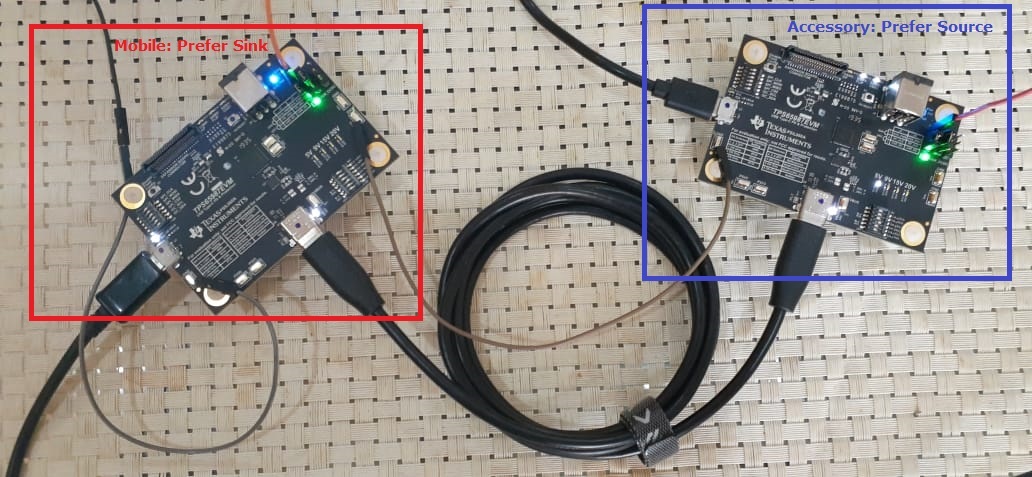Other Parts Discussed in Thread: TPS65987,
Hi,
We are using TPS65987 in our android accessory design.
Following is the top level block diagram using TPS65987D.
1. We are drawing the power from type c Receptacle connector and passing power through the android smartphone/Tablet using type c plug connector.
2. We have to keep our accessory in device mode (UFP) as smartphone/Tablet will be Host for data transfer. Power role should be dual role for sink and source.
If power adapter is there on receptacle connector than we required to charge the smartphone and if adapter is not there we need to sink the power from the
smartphone.
3. So we would like to know in which configuration we can achieve this. Fast role swap is required to support this?
if yes than how can we achieve ?




